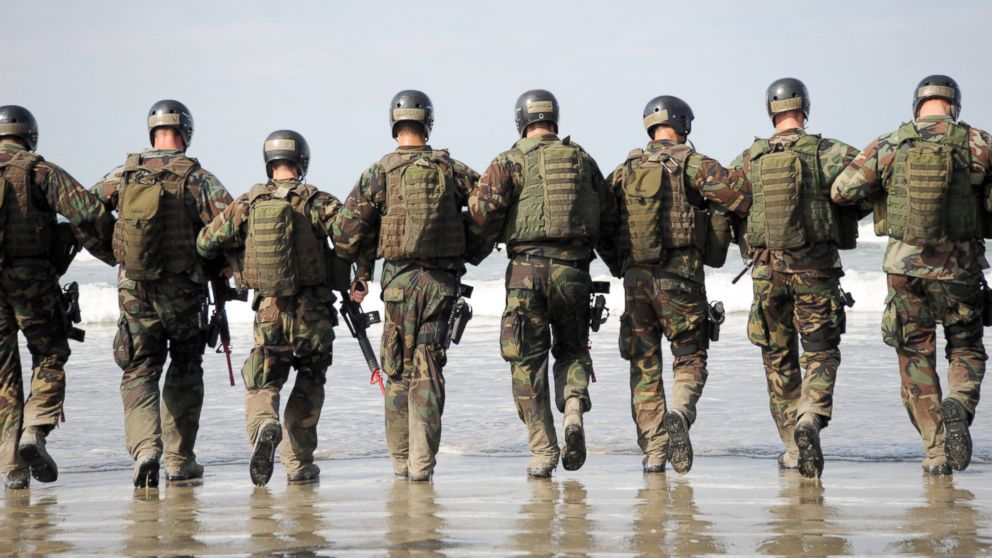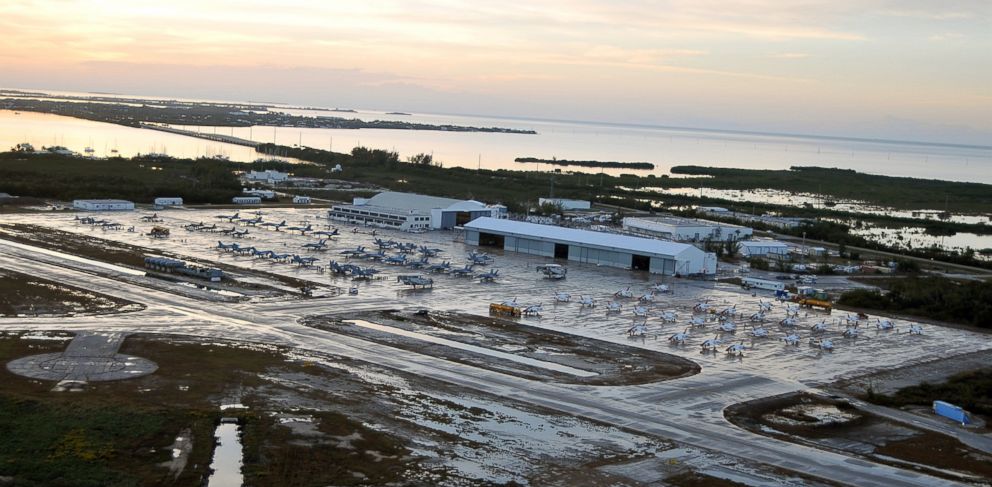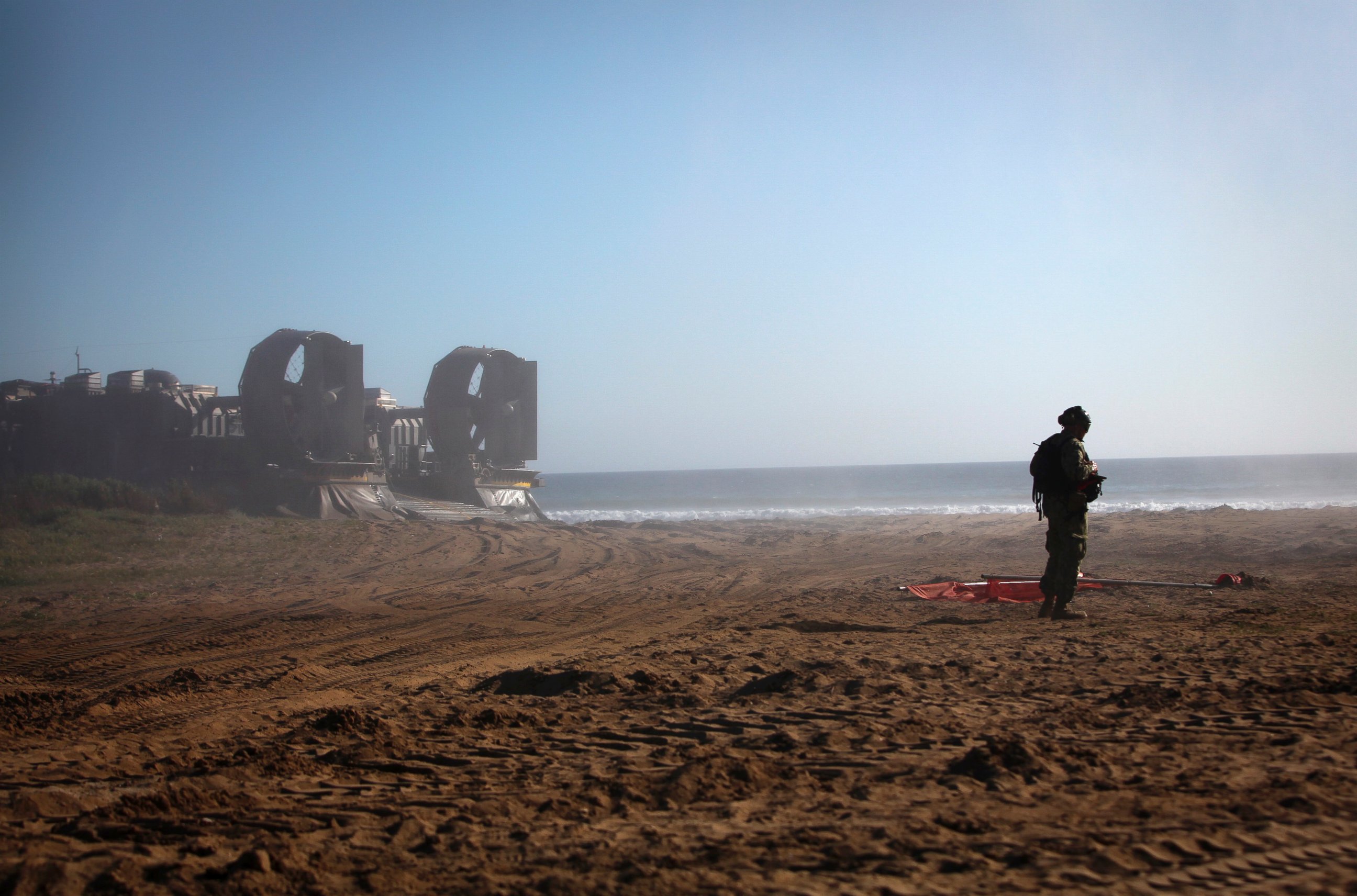Climate Change Could Pose 'Significant Risk' to US National Security, Reports Say

— -- A bipartisan group of military experts released a statement and two reports today arguing that climate change poses a significant risk to U.S. national security.
The statement, released by the bipartisan group Climate Security Consensus project, argues that the effects of climate change will put a strain on water, food and energy supplies, which can result in "unique and hard-to-predict security risks."
"The effects of climate change present a strategically-significant risk to U.S. national security and international security," the statement, signed by a bipartisan group of 25 national security and military leaders including Dr. Geoffrey Kemp, former special assistant to President Reagan for national security affairs and Dov S. Zakheim, former undersecretary of defense under President George W. Bush, said.
The statement argued that the "U.S. must advance a comprehensive policy for addressing this risk."
Some of the climate change risks to international security include "the likelihood of intra or international conflict, state failure, mass migration, and the creation of additional ungoverned spaces," the statement added.

Reports from two organizations that specialize in the convergence of climate change and national security released with the statement also described the risks. The Climate and Security Advisory Group, comprised of forty-two military and national security experts, issued a "briefing book" to advise the next President of their growing concerns and suggest tactics for creating a task force within the government.
"The national security community has focused on the intersection of climate risk and security for over a decade," Rear Admiral David Titley, of the U.S. Navy (retired), a member of the Climate and Security Advisory Group said in a statement. "The conclusions are clear: climate risks are accelerating in their likelihood and severity. The next administration, whomever is elected, has the duty and obligation as Commander in Chief to manage this risk in a comprehensive manner.”
The book urges the next President to prioritize climate change and assign a cabinet-level leader for climate change and security issues, adding that the Secretary of Homeland Security should develop a "National Adaptation and Resilience Strategy" to deal with climate change and better prepare the nation for extreme weather events.

The second report was prepared by The Center for Climate and Security's military expert panel, which includes senior retired flag officers from each of the division of the Armed Services. This panel outlined the effect of sea level rise on coastal military bases and how it could affect military operations.
"For the United States to remain strong and ready, we must ensure that our military and federal first responder capabilities can withstand and adapt to sea level rise. There isn’t a region in the world where rising seas don’t affect our military readiness and operations, and complicate our ability to do our job," Vice Admiral Rob Parker of the U.S. Coast Guard (retired) and a member of the Military Expert Panel for the Center for Climate and Security said in a statement. "For our Coast Guard this is particularly true as they are embedded in the communities they serve and doubly impacted at home and at work.”
Risks associated with sea level rise could impede military readiness, the report argues, saying the risks, "if not sufficiently mitigated, may eventually have wide-ranging effects on the military’s ability to effectively fulfill its mission."
They also presented a series of responses including building to address infrastructural risks, increased planning, increased tracking of climate trends, and increased collaboration with nearby civilian communities.
The threat to national security as a result of climate change comes as global temperatures continue to break records. On Monday, NASA announced that August 2016 tied with July 2016 for the warmest month ever recorded. Earlier this summer, NASA released mid-year data announcing that 2016 was on track to be the hottest year since their modern record-keeping began in 1880.




